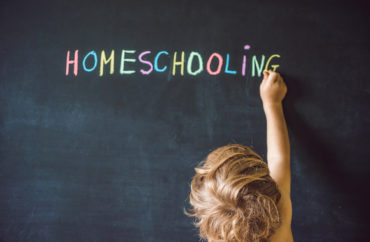
But Harvard professor stands behind her position that children’s right to safety, access to diverse ideas trumps parents’ unilateral right to homeschool
The Harvard University professor who was at the center of a recent firestorm of controversy for arguing in favor of a presumptive ban on homeschooling reiterated her position Monday in an online debate that included a homeschooling scholar-mom who challenged the Ivy League professor.
Elizabeth Bartholet, law professor of public interest and director of the Child Advocacy Program at Harvard Law School, said during the forum her concerns are based on the need to protect children from potential abusive parents, as well as children’s right to be exposed to different viewpoints instead of whatever narrow focus homeschooling parents might provide.
Bartholet, during a 90-minute discussion hosted by the CATO Institute, said the government plays a necessary role to that end.
“Children don’t have the power adults do to protect themselves. So, I think it’s important that the government be … protector for children and be able to intervene to protect …their most fundamental rights,” she said.
Bartholet said her concern over homeschooling is not homeschooling in general, but “unregulated homeschooling.”
“It’s the fact that there is virtually no meaningful regulation or oversight to ensure either protection against abuse and neglect or that children are given the fundamentals of an education,” she said. “I never said I was for a total ban.”
The forum, “Homeschooling: Protecting Freedom, Protecting Children,” also included Kerry McDonald, senior education fellow at the Foundation for Economic Education and author of “Unschooled: Raising Curious, Well-Educated Children Outside the Conventional Classroom.”
Although the event was billed as a discussion, there was debate between McDonald and Bartholet over the role of government in balancing freedom and safety.
McDonald criticized Professor Bartholet’s proposal for a presumptive ban on homeschooling that appeared earlier this spring in the Arizona Law Review article “Homeschooling: Parents Rights Absolutism vs. Child Rights to Education and Protection,” and the Harvard magazine article “The Risks of Homeschooling.”
McDonald (pictured at left) said the two pieces “understandably” had upset and angered many parents who homeschool — including herself.
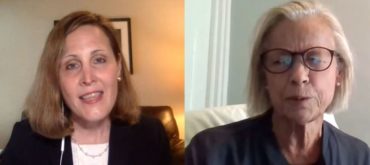 “I am a homeschooling parent right here in Cambridge, Massachusetts, just a couple of blocks away from Harvard’s main campus, who has spent much of my life and career advocating to protect the right of families to live free from government intervention, and I am both surprised and concerned at the deeply illiberal values that undergird arguments to limit homeschooling freedoms,” McDonald said.
“I am a homeschooling parent right here in Cambridge, Massachusetts, just a couple of blocks away from Harvard’s main campus, who has spent much of my life and career advocating to protect the right of families to live free from government intervention, and I am both surprised and concerned at the deeply illiberal values that undergird arguments to limit homeschooling freedoms,” McDonald said.
McDonald went on to argue that Bartholet’s presumptive ban would only allow a family to homeschool if the parents could prove that they are “worthy of the task” and “agree to other government involvement such as regular home visits by government mandated reporters of child abuse, frequent standardized testing … [and the requirement] that their children still take at least some classes at their local government school.”
McDonald said the center of the controversy is the issue of allowing the government to place the presumption of guilt on parents.
“But the heart of this challenge is a fundamental question,” McDonald said. “‘Should the government intervene in family life and monitor the myriad choices each family makes when there is no evidence of wrongdoing?’ In other words, is the role of government to suggest that families are guilty until proven innocent and must be kept under close watch in order to protect children?”
McDonald argued that Bartholet’s claim in her law review article that the majority of homeschooling families are “ideologically committed to isolating their children from the majority culture and indoctrinating them in views and values that are in serious conflict with that culture” relied on “astonishing false stereotypes of today’s homeschoolers.”
Citing multiple studies that found homeschoolers do consistently well academically, McDonald also noted that recent evidence indicates homeschoolers are more likely to participate in outside activities and events.
She also said that even though Bartholet’s and other homeschool critics’ assertion for the government to provide an educational standard through “ongoing oversight and evaluation” seem appropriate and even convenient, that such increased government regulation will limit “freedom, originality, experimentation, and divergence.”
“We may not like how different families chose to live and learn but that is no excuse to intolerantly impose our own preferences on them through government force,” McDonald said. “And let’s be clear, this is government force that is being called for here.”
But Bartholet pointed to what she called America’s “peer countries” and how they have “built into their constitutions very positive, very powerful positive protections for child rights.”
Bartholet also said that her concern over homeschooling is not homeschooling in general, but “unregulated homeschooling.”
“ … I don’t think that the ‘presumptive’ ban that I propose actually resembles anything like what Kerry described,” she said.
Bartholet argued that her presumptive ban would be introducing regulation on the same basis as other government regulation and laws against general child abuse and neglect.
“[W]e have regulation, we have child protection service agencies, and mandated reporters not because we think most parents, or a majority of parents, or even a huge significant number of parents abuse and neglect their children, it’s because a subset do,” Bartholet said. “And we need these kind of laws and protections to protect that subset.”
Bartholet said she still believes there is a “very strong connection between homeschooling and child abuse and neglect.”
While she conceded that there are many homeschooling families that encourage their children to engage outside of the home, Bartholet also argued that generally they don’t and instead raise their children in “very significant isolation.”
The Harvard scholar said this kind of isolation, which she believes is so prevalent among homeschoolers, presents a risk for ongoing abuse or neglect.
She argued that what protects children from this is the country’s mandated reporters, mainly public school teachers required by law to report suspected abuse to Child Protective Services.
She said that for this reason there should be a requirement for homeschoolers to take a course or an extracurricular activity at the public school where mandated public reporters can on a regular basis have the opportunity to report suspected abuse or neglect.
She argued for a “meaningful assessment” by the state, not parents. That is, that the state test and determine whether the children are actually learning.
She also argued for several preconditions for homeschooling, such as, a check on the parents with the Child Protective Services for “significant record of abuse and neglect” and inquiry on whether they are capable of teaching.
Finally, she contended that because children have a “right to exposure,” their education should include “some exposure to views and values other than those of the parents.”
The two women were also joined by panelist Milton Gaither, professor of education at Messiah College and author of “Homeschooling: An American History,” as well as Neal McCluskey, director of the Center for Educational Freedom at the CATO Institute, who served as both the moderator and a panelist.
The two said that some sort of compromise might be in order, suggesting that more oversight is needed, but it must not be draconian.
MORE: Harvard’s attack on homeschooling (and Christian parents) is maliciously false
IMAGE: Elizaveta Galitckaia / Shutterstock.
Like The College Fix on Facebook / Follow us on Twitter

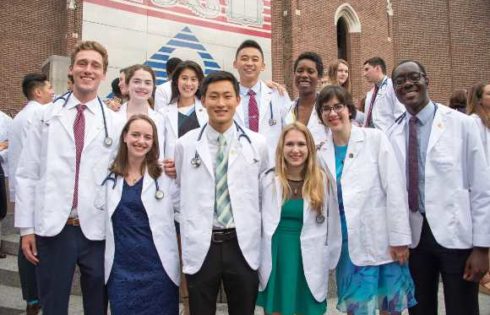
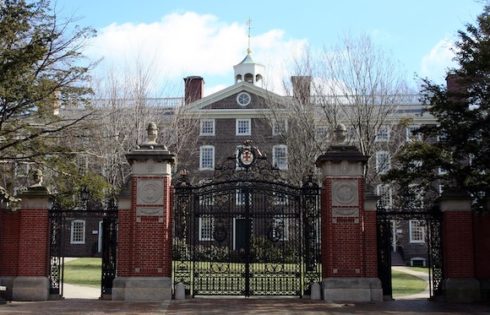
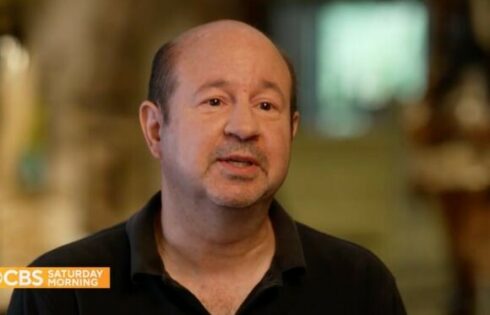
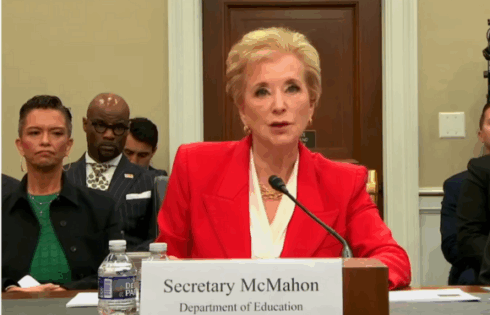
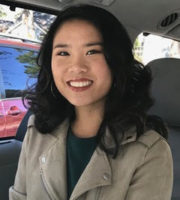
Please join the conversation about our stories on Facebook, Twitter, Instagram, Reddit, MeWe, Rumble, Gab, Minds and Gettr.